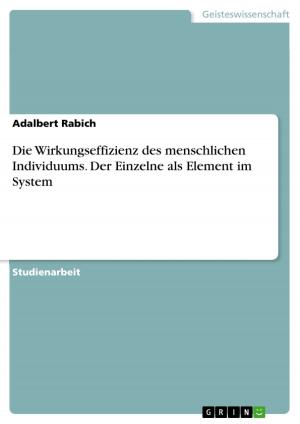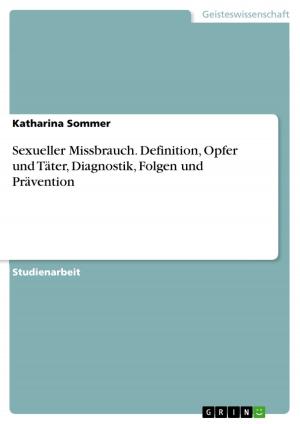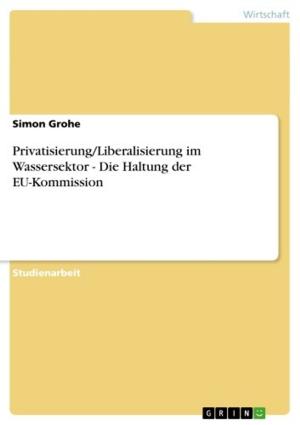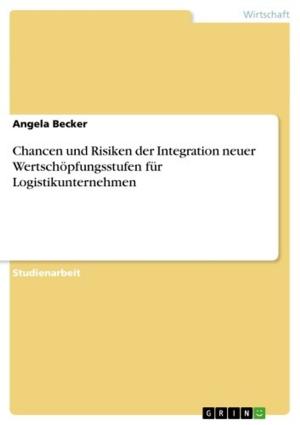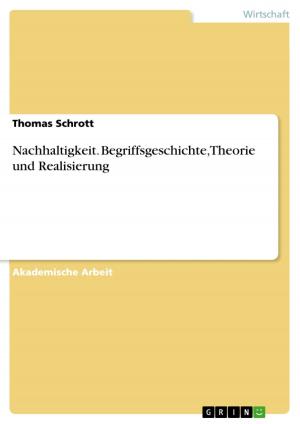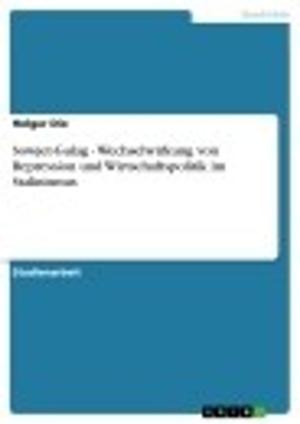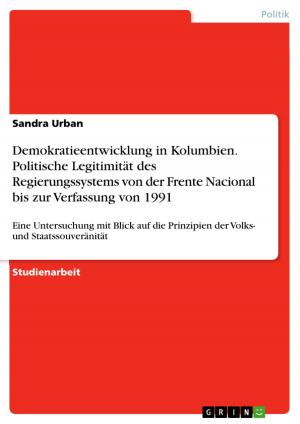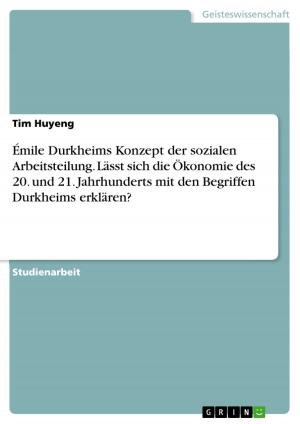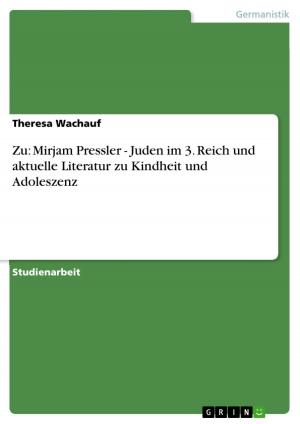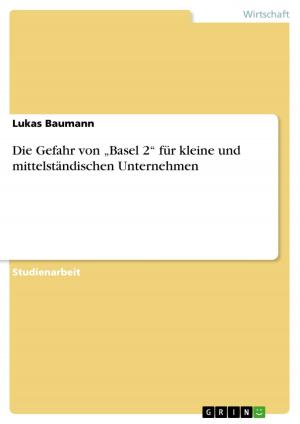Die Auswirkungen des Terrorismus auf die U.S.-amerikanische Gesellschaft nach dem 11. September 2001
Nonfiction, Social & Cultural Studies, Political Science| Author: | Claudia Draemann | ISBN: | 9783638009935 |
| Publisher: | GRIN Verlag | Publication: | February 25, 2008 |
| Imprint: | GRIN Verlag | Language: | German |
| Author: | Claudia Draemann |
| ISBN: | 9783638009935 |
| Publisher: | GRIN Verlag |
| Publication: | February 25, 2008 |
| Imprint: | GRIN Verlag |
| Language: | German |
Studienarbeit aus dem Jahr 2006 im Fachbereich Politik - Internationale Politik - Region: USA, Note: 1,3, Philipps-Universität Marburg (Politikwissenschaften), Veranstaltung: Krieg - Terror - Medien, 21 Quellen im Literaturverzeichnis, Sprache: Deutsch, Abstract: This Essay with its title 'Die Auswirkungen des Terrorismus auf die U.S.-amerikanische Gesellschaft nach dem 11. September 2001' deals with the political reaction of the Bush administration regarding the terror attacks on September 11th, 2001 and its aftermath on the US society. The Essay´s focus lies on the social accomplishment of the consequences which lead e. g. to restrictions of personal rights and fundamental freedoms of American citizens and foreigners. For understanding the current situation of U.S. society, the Essay begins in chapter two with the impacts of the terror attacks on the U.S. society and with their symbolic nature. Therefore, the terror attacks of September 11th, 2001 are put into context with former terror attacks on U.S. soil and against U.S. citizens staying abroad. Chapter three focuses on the U.S. society´s reaction shortly after the terror attacks on September 11th which was intensely influenced by the press coverage. The traumatic perception and the lack of critical reflexion in the U.S. society gives an explanation why there was such a high job approval for President Bush and its counterterrorism strategy just weeks after the attacks. The main chapter four begins in the first section with the restrictions of personal rights and freedoms as consequences of the PATRIOT Act which were part of the counterterrorism strategy of the Bush Administration after September 11th, 2001. It describes the restrictions of freedoms of opinion and assembly, the intrusion into privacy and the restrictions of personal freedoms of foreigners. The second section discusses the consequences of military reactions of the Bush Administration in Afghanistan and Iraq. In the long run, these measures, which were partly conducted under false pretences, led to distrust in the US society. The conclusion shows that the influence of the U.S. society on the Bush administration has been lost and that still a radical change cannot be recognized. Insular protests and resistance against the U.S. counterterrorism strategy do not change the government´s attitudes. But there is hope in the future if fundamental thinking structures of the U.S. society can slowly be overcome and the keen will for change resists.
Studienarbeit aus dem Jahr 2006 im Fachbereich Politik - Internationale Politik - Region: USA, Note: 1,3, Philipps-Universität Marburg (Politikwissenschaften), Veranstaltung: Krieg - Terror - Medien, 21 Quellen im Literaturverzeichnis, Sprache: Deutsch, Abstract: This Essay with its title 'Die Auswirkungen des Terrorismus auf die U.S.-amerikanische Gesellschaft nach dem 11. September 2001' deals with the political reaction of the Bush administration regarding the terror attacks on September 11th, 2001 and its aftermath on the US society. The Essay´s focus lies on the social accomplishment of the consequences which lead e. g. to restrictions of personal rights and fundamental freedoms of American citizens and foreigners. For understanding the current situation of U.S. society, the Essay begins in chapter two with the impacts of the terror attacks on the U.S. society and with their symbolic nature. Therefore, the terror attacks of September 11th, 2001 are put into context with former terror attacks on U.S. soil and against U.S. citizens staying abroad. Chapter three focuses on the U.S. society´s reaction shortly after the terror attacks on September 11th which was intensely influenced by the press coverage. The traumatic perception and the lack of critical reflexion in the U.S. society gives an explanation why there was such a high job approval for President Bush and its counterterrorism strategy just weeks after the attacks. The main chapter four begins in the first section with the restrictions of personal rights and freedoms as consequences of the PATRIOT Act which were part of the counterterrorism strategy of the Bush Administration after September 11th, 2001. It describes the restrictions of freedoms of opinion and assembly, the intrusion into privacy and the restrictions of personal freedoms of foreigners. The second section discusses the consequences of military reactions of the Bush Administration in Afghanistan and Iraq. In the long run, these measures, which were partly conducted under false pretences, led to distrust in the US society. The conclusion shows that the influence of the U.S. society on the Bush administration has been lost and that still a radical change cannot be recognized. Insular protests and resistance against the U.S. counterterrorism strategy do not change the government´s attitudes. But there is hope in the future if fundamental thinking structures of the U.S. society can slowly be overcome and the keen will for change resists.

